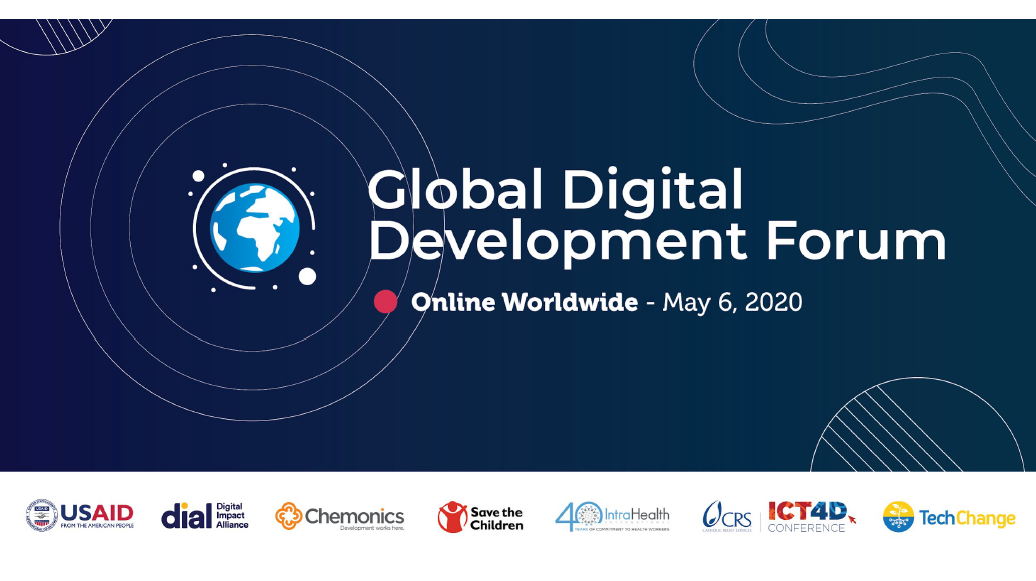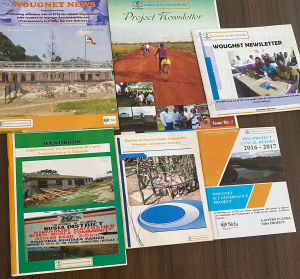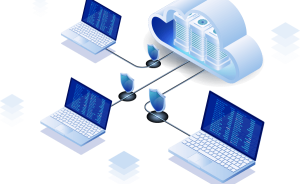Non-consensual intimate images (NCII), commonly known by the misnomer “revenge porn” is on the rise in Uganda and Sub-Saharan African countries like Zimbabwe. Patriarchal norms and attitudes in society paired with increasing Internet access — over 42% of Uganda’s population is now online — has spurred this new form of gender-based violence commonly referred to as “technology-assisted violence against women and girls”. More violations and threats are now happening towards women in cyberspace. However, most cases go unreported on the extent to violence against women online and they are quite often overlooked or excluded from discussions about violence against women and girls (VAWG).
What is NCII?
NCII is defined as the distribution or circulation of sexually explicit images or videos that were initially shared with the expectation that they would remain private. NCII is a form of intimate private violence (IPV), breach of privacy, and a violation of freedom of sexual expression and this causes women to self-censor which is an attempt to silence women and other groups from participating in the public spaces like the internet. Images or videos are distributed in most cases by the former partner(s) as an act of revenge or a response to rejection. These photos or videos are in many cases stolen from the victim’s phone or laptop. Sometimes, these images are captured secretly in bathrooms, hotels, swimming pools, clothing stores, changing rooms, and public restrooms. These images or videos are then shared widely over social media platforms, pornographic websites, and instant messengers like WhatsApp. Images/ videos are later used to stalk, threaten, blackmail, publicly shame, or extort money from victims or their families.
There are multiple forms of online violence against women including cyberstalking and harassment. However, NCII is still an unrecognized topic in Uganda as an online form of violence against women and girls. Yet, it undermines gender equality by placing the blame on women victims who are shamed for engaging in consensual sexual activity, which does not require any legal, moral, or logical basis. NCII keeps women in a subordinate position in society and fails to recognize women’s existence as anything other than sex objects. Women are never forgotten to be reminded that second class is their place in society.
Not “revenge porn”
Often, NCII is referred to as “revenge pornography”. However, this is a misleading term because it implies that taking explicit photos or videos of oneself or allowing someone to do so with consent is a pornographic act. Sometimes, perpetrators may not be motivated by revenge. The creation of an explicit image in the expectation that is being shared with a private or intimate relationship does not equate to pornography. The disclose of private sexually explicit images to someone other than the intended audience is pornography. NCII is a crime, not porn, and has a serious emotional and mental impact on its victims. It is a gendered issue common among women activists, politicians, advocates, musicians, and human rights defenders, who are commonly referred to as women celebrities.
Women are regarded as bigger targets of NCII because they are perceived as inferior and soft targets. Women too are held more accountable for their private conduct in society than men. However, this does not rule out the fact that some men too are victims of NCII, although this happens rarely. The social, personal, and professional repercussions of incidents of NCII on male victims have not been adequately documented yet. However, it is likely that the impact of NCII cisgender heterosexual men is less severe than that of women.
Revenge pornography is a victim-blaming term that risks misleading government policy and even the public. Victims are harassed and yet the law does nothing to protect them. For example, in 2014, when pictures and videos of Desire Luzinda a Ugandan celebrity was published by her Nigerian ex-lover, it was on everyone’s lips. However, unfortunately, women’s rights organizations and activists were quiet about Desire’s case. She was harassed by the police, public, and government ministries. She was arrested and charged with spreading pornography by the leaked videos. Desire went and apologized publicly on Facebook to her fans, daughter, and family for something she did not do. The response of NCII in Uganda and other sub-Saharan African countries is slut-shaming.
Laws pertaining to NCII
Sub-Saharan African countries like Uganda and Malawi have laws that protect privacy, dignity, and women’s rights yet they fail to recognize NCII as a form of violence. In Uganda, section 13(1) of The Anti-Pornography Act 2014, criminalizes the production, trafficking in, publication, broadcasting, procuring, importing, exporting, selling or abetting any form of pornography. This Act punishes the victim for the production of the explicit pictures/videos while the publication, broadcasting, trafficking are not looked at.
The Data Protection and Privacy Act, 2019 is neutral and does not mention NCII. Section 148 of the Penal Code Act stipulates that “Any person who, whether in public or in private, commits any act of gross indecency with another person or procures another person to commit any act of gross indecency with him or her or attempts to procure the commission of any such act by any person with himself or herself or with another person, whether in public or in private, commits an offense and is liable to imprisonment for seven years.” This section leads to re-victimization.
Social injury
A silver lining has been the case of Sanyu Robinah Mweruka, a Ugandan news anchor whose sex tape was leaked. However, she did not face any legal charges because of support from her husband and the TV station named Bukedde where she was an anchor. Other Ugandan celebrities including Judith Heard, Fabiola Anita and Cindy Sanyu, have had their nude pictures or videos shared online without their consent and have been punished for their leaked videos or images under the Anti-pornography Act. NCII affects these victims in different ways, such as losing their jobs which happened in the case of Anita Fabiola, a television personality. Victims are also revictimized, traumatized, face damaged relationships and reputation, and mental health issues. Some even attempt suicide. Google and social networking sites, when searched, still display the details about these victims, exposing their identity. Social stigma and other non-legal factors prevent victims from seeking and receiving timely justice and support.
The onus to constantly watch out for potentially becoming a victim of NCII should not be on individual women and non-binary people. NCII is cruel and illegal. We need solutions and accountability at the law and policy levels. There is limited public awareness, hence there is a need for sensitization.
While changes in the law, policy, and social norms are necessary, they will take time to come into effect. Because of the cultural and religious beliefs, people are taken away by morals and culture, hence less attention is given to the right to privacy and data protection.
Additionally, new threats such as stalker were and spouseware have emerged.
Emerging digital threats
Stalkerware is monitoring software or spyware that is used for stalking. The term was coined to describe the use of commercial spying software by stalkers. When used by the spouse or an intimate partner of the victim, such spyware is termed “spouseware”. (Source: Wikipedia https://en.wikipedia.org/wiki/Stalkerware). These new trends in technology explain a practice that is harming many women who are surveilled by their current or former partners and jilted lovers.
The only immediate recourse currently available for most sub-Saharan women and non-binary persons to prevent incidents of NCII is to practice good digital security to recognize and prevent potential incidents of NCII. Additional practice of physical security and psychosocial well-being is also a necessity. Based on the training sessions and other work that Women of Uganda Network (WOUGNET) have done and wishes to further undertake, the strategies and measures to recognize and prevent incidents of NCII that individuals can undertake are to practice holistic security (that is, their physical, digital, and psychosocial wellbeing).
Holistic security
Holistic security is an attempt to integrate these concepts (digital, physical and legal security, psychosocial wellbeing, and organizational security) and highlight their inter-relatedness so that we can approach these processes in a more connected and meaningful way. (Source: HURIDOCS https://bit.ly/35ku0hg)
Physical security is defined as the protection of personnel, hardware, software, networks, and data from physical actions and events that could cause serious loss or damage to an enterprise, agency, or institution (Source: Wikipedia). These measures are designed to deter potential unauthorized users or to detect intrusions and monitor/record intruders.
For example, when a person is building a house, they would need to have tall fencing topped with barbed wire, razor wire or metal spikes to protect their home or property. But this does not guarantee that the security is 100% because as we plan all these security measures, perpetrators are also looking and innovating for alternative ways to breach security and break into the house. It is the same with physical security measures and strategies to address NCII. Knowing that it does not guarantee one hundred percent security is very key. These measures also do not work for everyone. Physical barriers are just designed to defeat defined threats and to attack perpetrators. While all kinds of security is important, physical security is often overlooked and its importance is unrecognized when discussing security measures or strategies in the online space.
Physical security strategies and measures
- Ensure doors and windows are bolted properly, and there are secure locks.
- Cover peepholes or slits in windows or doors.
- Inspect the room to check if something looks out of place, like a slight misfit tile in a faux ceiling.
- Look for out of place objects like smoke detectors.
- Never leave devices unattended and be careful about giving physical access to your devices to anyone, even if intimate images or videos have been deleted from it.
- Use wireless camera jammers or check if radio/ WiFi transmitters exist in your surroundings. However, these are tedious and time-consuming measures for ordinary people to follow. And these steps are not necessarily practicable all the time, everywhere by everyone.
- Ensure curtains at home are opaque and do not show indoor activity.
- Cover phone cameras with a sticker. Cover or remove web cameras from desktops.
- Scan WiFi networks in hotel rooms, AirBnbs, etc for suspicious devices using apps such as Network Scanner.
- Look for camera lens reflection by turning off the room light and flash the light from your phone and if there is a lens, it will reflect the light.
- Use a towel to cover unknown or suspicious devices in hotel rooms or Airbnbs.
- If you suspect or know for sure that spyware has been installed on your device(s), contact a digital security expert or helpline from another device.
Digital security strategies and measures
- Use secure messaging apps such as Signal, Telegram, and Wire for having intimate conversations and to send and receive sexually explicit images. All three apps support timed messages, that is, messages that will get deleted after a specified duration of time.
- Avoid the use of free virtual private networks (VPNs) because most of them are unsecured and are used to mine the data and personal information of the users. However, VPNs like Bitmask and Psiphon are exceptions. They are free of cost, secure, and reliable. TOR and paid VPNs such as Proton and Nord are also recommended. Additionally, in Uganda, the introduction of the social media tax in 2018 by the Ugandan government is a barrier to access to secure VPNs as the tax makes it more expensive to access one.
- Use apps such as ScrambledEXIF (Android) to delete metadata from sensitive photos before sharing them. Similarly, there are tools available for different operating systems using which one can remove metadata from videos.
- Avoid using the private messaging feature on social media websites for the purpose of having intimate conversations.
- Read the privacy policy before using an app for intimate conversations, (although this may not be easy for the layperson).
- Use strong secure passwords and passphrases and do not share them with anyone.
- Practice secure browsing. (Refer to the note at the end of the article for more digital security resources and references.)
Digital security is not only about protection but the resilience of internet users as well. Above all, digital consent is the best digital security measure.
Psychosocial security strategies and measures
- Define boundaries with a partner(s) on intimate images. Have a conversation about not storing, not backing up explicit photos and not sharing them with anyone, and securely deleting them.
- Understand the fault lines of coercion and consent (A statement such as, “If you love me, you will send me a naked picture of yourself” is an indicator of coercion and not love).
- For victims of NCII and other forms of intimate partner abuse: Seek professional mental health support in the form of counseling or medical treatment to mitigate the mental and emotional impact of such incidents and their fallouts.
- Sensitization programs should be among communities, young people and the general public to make them aware that NCII is a form of online violence and a legal offense. These programs could be held in upper secondary schools and universities. Also, awareness programs should be carried out for the general public.
Consent is a basic human right that should be respected. As we teach the women in our families and social circles safety, the men should be taught about consent and to accept the fact that only a “yes” means a “yes” from a woman or girl.
Written by:
Sandra Aceng, Peace Oliver Amuge & Patricia Nyasuna, WOUGNET; Rohini Lakshané, The Bachchao Project
NOTE: This is a detailed write up of our Breakaway Session at the Virtual Global Digital Development Forum (GDDF 20) held on May 6, 2020. Links to useful resources and further reading material can be found on the session slide deck here. This session was moderated by Rohini Lakshané, Director (Emerging Research), The Bachchao Project.






